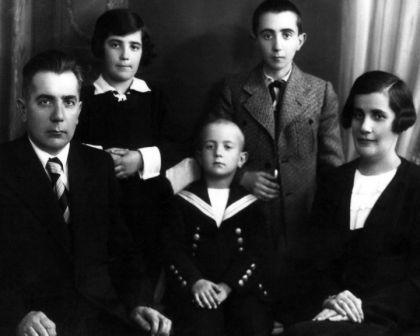by Ruth Reches
A well-rounded understanding of the psychological and other effects of the Holocaust is relevant both in the academic and social spheres. It is imperative that we grasp the extent of the Holocaust and understand it fully in order to avoid such a disastrous phenomenon in the future. There are many academic sources which portray and fully examine the Holocaust from the moral, philosophical, economic, political and other points of view. Psychological research on the Shoahm however, has only just begun. Without such research an understanding of the extent of the Holocaust is incomplete and the evaluation of its meaning incorrect.
Catastrophes and especially their psychological impacts always capture the attention of psychologists. There is a wide variety of research focusing on the psychological effects of, for instance, natural disasters or military conflicts. A common feature in researching these catastrophes is the fact that scholars concentrate on temporally more proximate consequences. Usually such research is carried out right after the event takes place or in the course of a few years. Long-term psychological effects are under-researched but it is this particular area which is of key importance: it allows us to evaluate the fundamental outcomes which do not fade easily.
A catastrophe as significant as the Holocaust traumatizes separate individuals and becomes a social problem. An individual person’s traumatic experience is directly linked to the traumatic experiences of other individuals surrounding him or her. If non-adaptive defence mechanisms are widely spread within a society (i.e., public discussions on the topic of the Holocaust are avoided) and traumatizing memories are negated, then the people who have experienced the trauma likewise will not speak and will attempt to banish it from their thoughts. In this case unrealized memories which have not been integrated through personal experience into a social context are passed on to future generations and integration of the traumatizing experience is postponed.
We expect our research to have a direct psychotherapeutic impact on respondents. During the narrative interview being carried out for the first time in Lithuania, Holocaust survivors will have an opportunity to remember and narrate their traumatic experiences (some of them for the first time) and this may have a positive therapeutic effect.
Having remembered, related and realized their painful experiences, survivors will have an opportunity to view their experience from a different angle and will be able to transmit different information to their children and grandchildren.
We hope the ensuring publication will enable everyone to get acquainted with the psychological effects of the Holocaust.
More articles on the topic:


